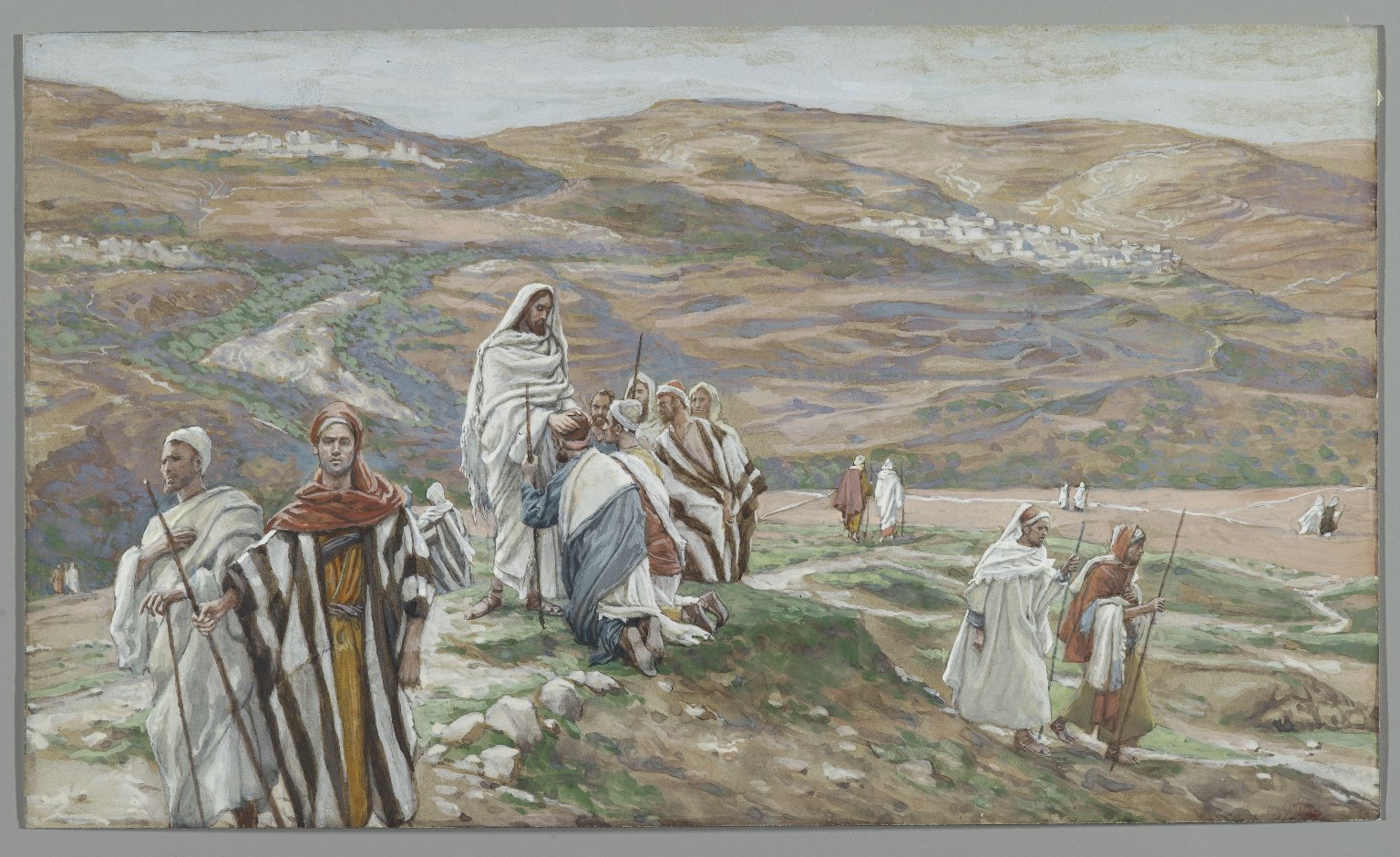
18th Sunday in Ordinary Time B
Readings: Exodus 16:2-4,12-15 Ephesians 4:17,20-24 John 6:24-35
The readings for this Sunday proclaim God as the giver of life-sustaining gifts: manna for Israel in its journey through the wilderness, and Jesus, the bread come down from heaven, the source of eternal life. Christians are challenged to move beyond working simply for perishable food to union with God, the giver of the gifts that sustain God’s people on their journey through history.
The Exodus reading presents a sharp contrast between the grumbling Israelites and the Lord who provides manna and quail for their journey through the wilderness from Egypt to Mount Sinai. Rather than trusting the God who had saved them from slavery in Egypt with spectacular signs and wonders, “the whole Israelite community” grumbles and wishes nostalgically that they had died in Egypt where “we sat by our fleshpots and ate our fill of bread!” Material security in slavery is preferred to the freedom of the wilderness which calls for trust in God. The Israelites complain to Moses and Aaron, “But you had to lead us into this desert to make the whole community die of famine!” In spite of these rebellious complaints, the Lord patiently promises sustaining gifts of manna and quail “so that you may know that I, the Lord, am your God.” The purpose of these gifts is not simply physical sustenance in the wilderness. Behind the Israelites’ complaint about lack of food is their failure to trust in God. The daily portions of food will be given to “test them to see whether they follow my commandments or not.” When the Israelites see the strange “fine flakes like hoarfrost” and ask, “What is this (ma-hu’)”? Moses tells them, “This is the bread which the Lord has given you to eat.” Israel is challenged to move beyond the gift to the giver, the One who sustains the community on its journey to freedom under the covenant. Sadly, they sin by both trying to store more manna than they need (16:19-21) and then trying to go out to gather manna on the Sabbath when they have provided with a double portion on the day before (16:27-30).
The Epistle reading from the Letter to the Ephesians also exhorts them no longer to live lives of “illusion and desire, and acquire a fresh, spiritual way of thinking.” This Gentile community that has now been incorporated into the cosmic body of Christ with Jews has to set aside its empty pagan way of life and “put on that new man created in God’s image, whose justice and holiness are born of truth.”
The Gospel is the beginning of the Bread of Life dialogue between Jesus and the crowd that follows his multiplication of the loaves and fishes and the miraculous crossing of the sea by walking on water (John 6:1-21). As always in John, the dialogues are filled with irony and misunderstanding and challenge Jesus’ hearers to understand those signs as calling for a new spiritual insight into his identity as the One sent from God.
The crowd’s initial question, “Rabbi, when did you come here?” is simply an attempt to find out how Jesus arrived in Capernaum without coming in the boat with his disciples. But Jesus immediately chides them for looking for him simply because he has physically fed them with loaves and not because they have seen those actions as signs pointing to his relationship with the Father. He challenges them with wisdom sayings, like Lady Wisdom in Proverbs: “You should not be working for perishable food but for food that remains unto life eternal, food which the Son of Man will give you; it is on him that the has set his seal.” When they in turn ask what they must do “to perform the works of God,” Jesus replies: “this is the work of God: have faith in the One he sent.”
The dialogue continues to build on the twin themes of “food” and “work.” When the crowd asks Jesus to perform/work a sign as a basis for their putting faith in him and mentions the sign of manna given to the ancestors to eat in the desert, Jesus’ response is twofold. First of all, he clarifies that “it was not Moses who gave you bread from the heavens; it is my Father who gives you the real heavenly bread.” Then Jesus adds that “God’s bread comes down from heaven and gives life to the world,” but the crowd seems to understand him literally. They want perpetual physical nourishment. “Sir, give us this bread always.” With this request, Jesus climactically announces: “I myself am the bread of life. No one who comes to me shall be hungry, no one who believes in me shall thirst again.” Jesus is proclaiming that belief in him as the revelation of the Father’s love is the way to union with the Father in an eternal life. “For this is the will of my Father, that everyone who sees the Son and believes in him may have eternal life, and I shall raise him on the last day” (6:40). Ultimately, this life-giving union with the Father through Jesus is the community’s sustenance as it awaits “the last day.”


 15th
15th